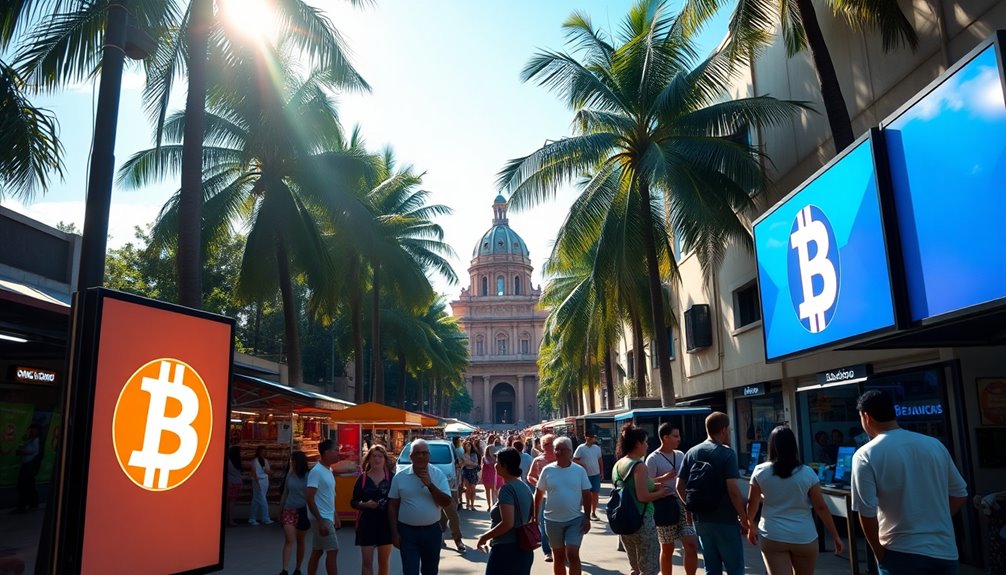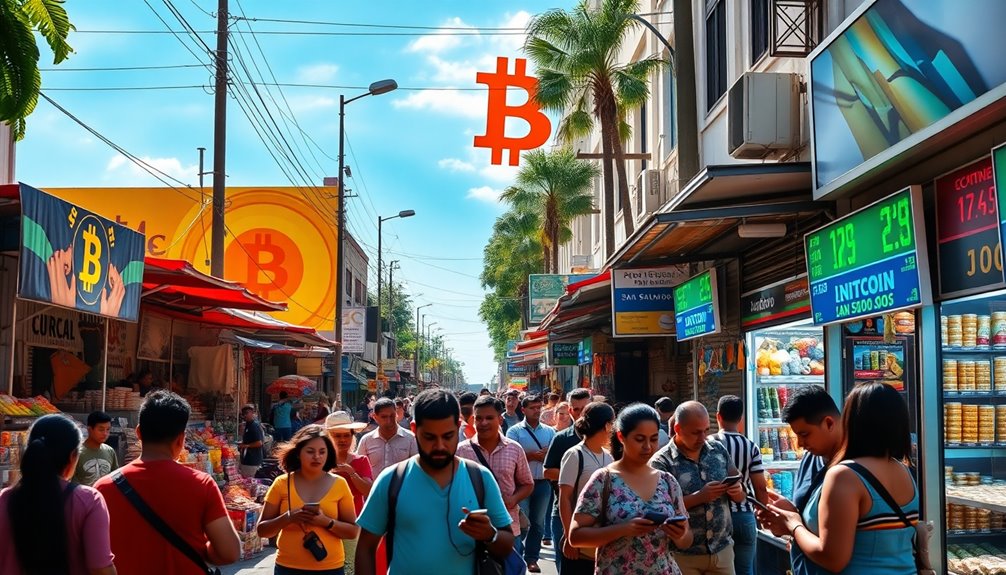You might be wondering how El Salvador's Bitcoin landscape has shifted after its recent IMF agreement. With a cautious approach now in play, the government has made Bitcoin acceptance voluntary for businesses while still recognizing it as legal tender. This balancing act aims to mitigate financial risks, but skepticism from citizens about Bitcoin's volatility remains. What does this mean for the future of Bitcoin in the country? The implications could be significant.

Since El Salvador secured a $1.4 billion loan from the IMF, the country has shifted its approach to Bitcoin, making acceptance voluntary for the private sector. This marks a significant change from the previous requirement that businesses accept Bitcoin. By transitioning to a voluntary model, the government aims to reduce financial risk and foster a more stable economic environment. You'll notice that while Bitcoin remains legal tender, the emphasis has shifted toward encouraging cautious adoption rather than mandating it.
The IMF agreement also limits public sector engagement in Bitcoin-related activities. This means that government entities won't be as involved in the cryptocurrency market, potentially easing concerns about volatility and financial exposure. Moreover, El Salvador now requires taxes to be paid in U.S. dollars, further distancing the country from reliance on Bitcoin for fiscal obligations. This move reflects a broader intent to stabilize the economy amidst ongoing challenges.
While the country continues to hold a significant Bitcoin reserve—approximately 6,068 Bitcoins valued at nearly $600 million—its purchasing strategy remains active. El Salvador is still buying one Bitcoin daily, which indicates a commitment to maintaining its strategic reserve even as it reassesses its overall Bitcoin policy. This dual approach of holding Bitcoin while shifting toward a more cautious acceptance strategy reflects a nuanced understanding of the cryptocurrency's potential benefits and risks. Bitcoin's adoption as legal tender has also sparked interest in foreign investment and increased tourism from cryptocurrency enthusiasts.
The economic implications of the IMF loan are substantial. It aims to address balance-of-payment needs and support necessary reforms. You'll likely see improvements in inflation rates and a narrowing current account deficit as the country implements fiscal policy reforms.
While Bitcoin adoption has sparked interest in remittances and tourism, the overall impact has been modest, and many citizens remain skeptical due to Bitcoin's inherent volatility.
Looking ahead, El Salvador's approach to Bitcoin will likely evolve alongside global cryptocurrency trends. Enhanced regulatory measures will be necessary to safeguard financial stability while balancing innovation. The international community's reaction to the IMF agreement underscores these financial risks, and the country will need to navigate these complexities carefully.
As El Salvador strives for sustainable growth, its ability to harmonize Bitcoin's innovative potential with fiscal responsibility will be critical in shaping the future of its economy.







